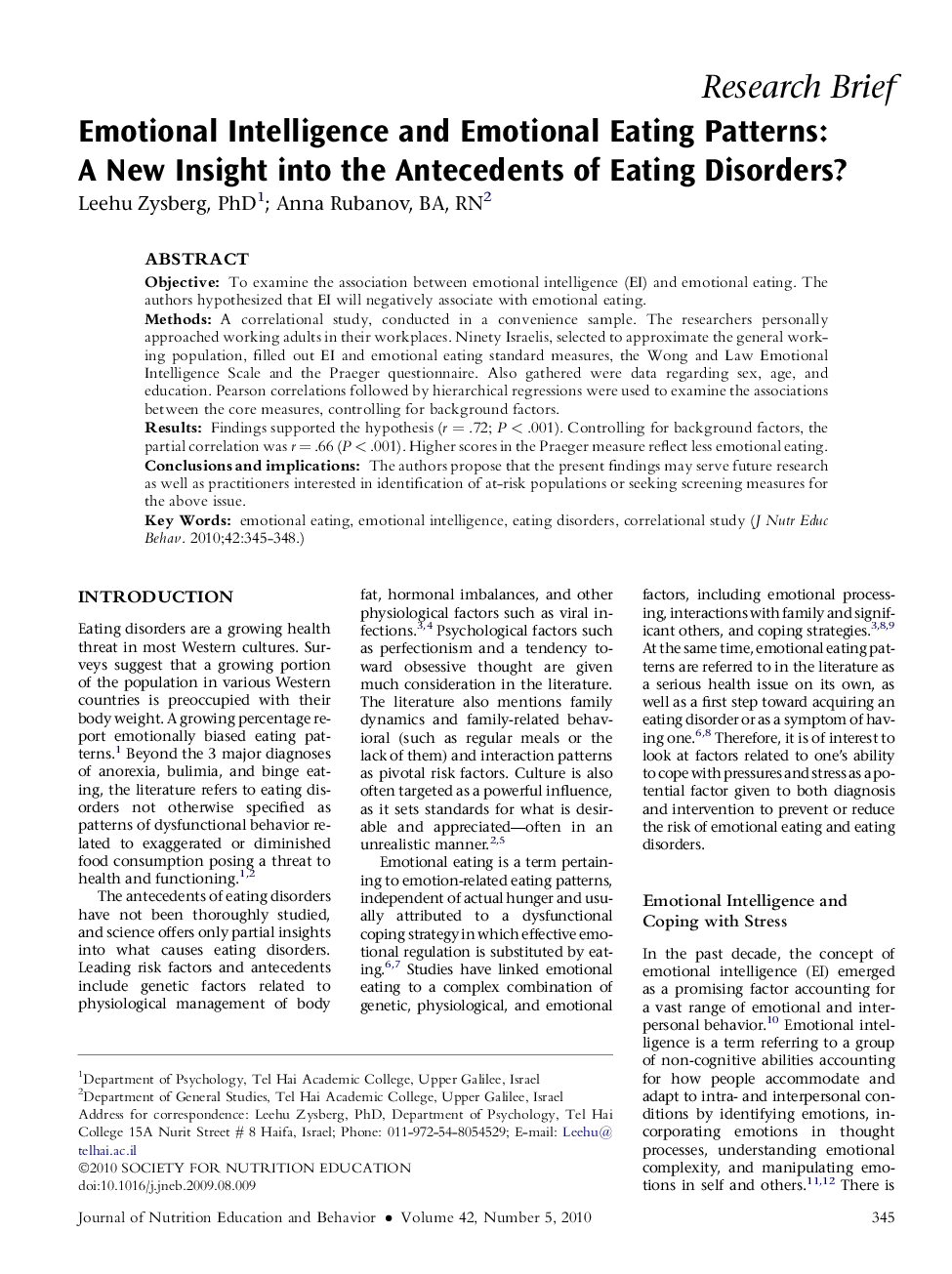| Article ID | Journal | Published Year | Pages | File Type |
|---|---|---|---|---|
| 362490 | Journal of Nutrition Education and Behavior | 2010 | 4 Pages |
ObjectiveTo examine the association between emotional intelligence (EI) and emotional eating. The authors hypothesized that EI will negatively associate with emotional eating.MethodsA correlational study, conducted in a convenience sample. The researchers personally approached working adults in their workplaces. Ninety Israelis, selected to approximate the general working population, filled out EI and emotional eating standard measures, the Wong and Law Emotional Intelligence Scale and the Praeger questionnaire. Also gathered were data regarding sex, age, and education. Pearson correlations followed by hierarchical regressions were used to examine the associations between the core measures, controlling for background factors.ResultsFindings supported the hypothesis (r = .72; P < .001). Controlling for background factors, the partial correlation was r = .66 (P < .001). Higher scores in the Praeger measure reflect less emotional eating.Conclusions and implicationsThe authors propose that the present findings may serve future research as well as practitioners interested in identification of at-risk populations or seeking screening measures for the above issue.
